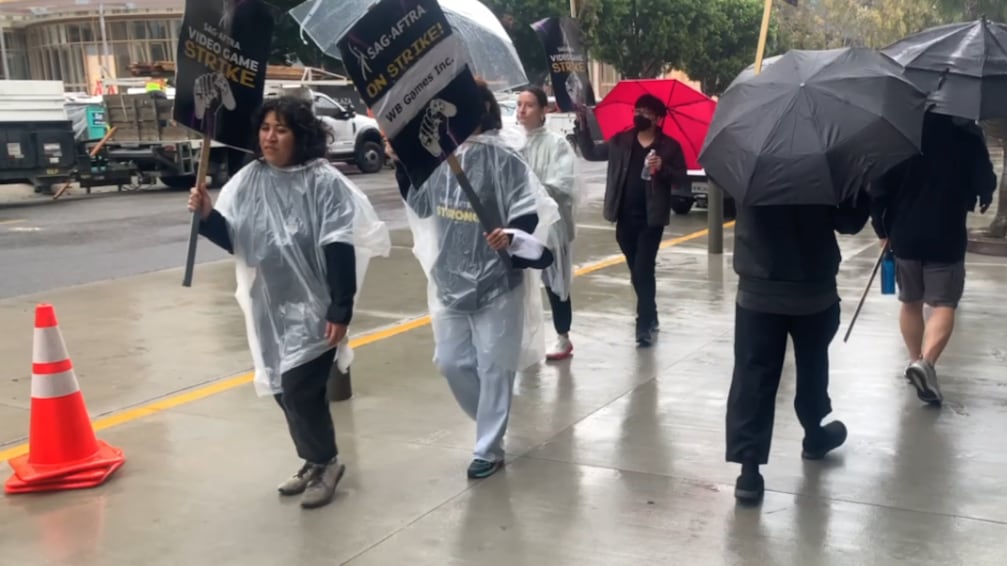Around 30 SAG-AFTRA video game voice actors and performers picketed outside of Warner Brothers headquarters in Burbank, California this morning amid an ongoing workers strike that started last July.
Their goal is to renegotiate their contracts to include artificial intelligence protections. Video game performers said they will continue striking until a new contract is signed.
“This fight is much bigger than performers. This is an overall how do we want this industry that is a booming industry, how do we want it to move forward?” said Andi Norris, a video game stunt performer who specializes in creature performances. “Do you want the human elements in there? Because if we, if we switch to AI, you start to lose that.”
According to Norris, one of the ways video game performers are affected by generative AI is when it is used to replicate movement patterns.
Norris said there are some days when they spend up to 8 hours doing rigorous movement on all fours. With current AI protocols in the video game industry, game companies can then replicate those movements through AI without compensating the performer. Norris said they are joining the strike to ensure that can no longer be the case.
“I want to be compensated for my work that’s still powering your game, so it’s not like I get paid for one day of work,” Norris said. “It’s like I get paid anytime that my work goes into powering your game, and I get something because you’ve taken the work away from me.”
These AI replication strategies can be used in voice acting, too. Marin M. Miller, a video game voice actor, said they also want to have more control over the content their voice is being used for.
“If our bodies, our voices, our likeness, are being used to puppet hate speech, or sexual things, things that we would not approve of, generally, they would need to like get our consent, and we would need to choreograph those things in advance,” Miller said. “But our employers do not agree with us, so that’s why we’re withholding our labor.”
In October some companies signed interim agreements to give actors temporary protections while they continue with production on new games. Over 120 games from 49 companies signed these contracts that month.
The contract proposed by representatives of the video game voice actors also includes a wage increase of over 15% and more health and safety protections, according to Polygon, a gaming and entertainment news site.
Miller said generative AI has greatly affected their ability to make a living.
“I now have to compete with subpar robots, and my employers expect me to train them for free,” Miller said. “Basically they argue that everything I speak during a session they own until the end of time.”
Other companies, however, are rolling out games with silent characters, like Destiny 2’s recent Heresy update.
Last week, when Warner Brothers announced they were shutting down three game companies and halting production on the Wonder Woman game series, it only added more fuel for strikers moving to the picket line.
Mark Musashi, a video game performer and occasional stunt coordinator and voice actor, said even before the strike, studio shutdowns and game cancellations were putting the industry in a tough spot. Regardless of the financial challenges, people are still striking.
“If we just give in now, I mean things will be great now, but then, however many years from now, then you’re not going to be paying rent, your mortgage, whatever,” Musashi said. “There is no short term drought you need to get through. That is going to be the end.”
Their hope, he said, is to set a precedent for the future.
